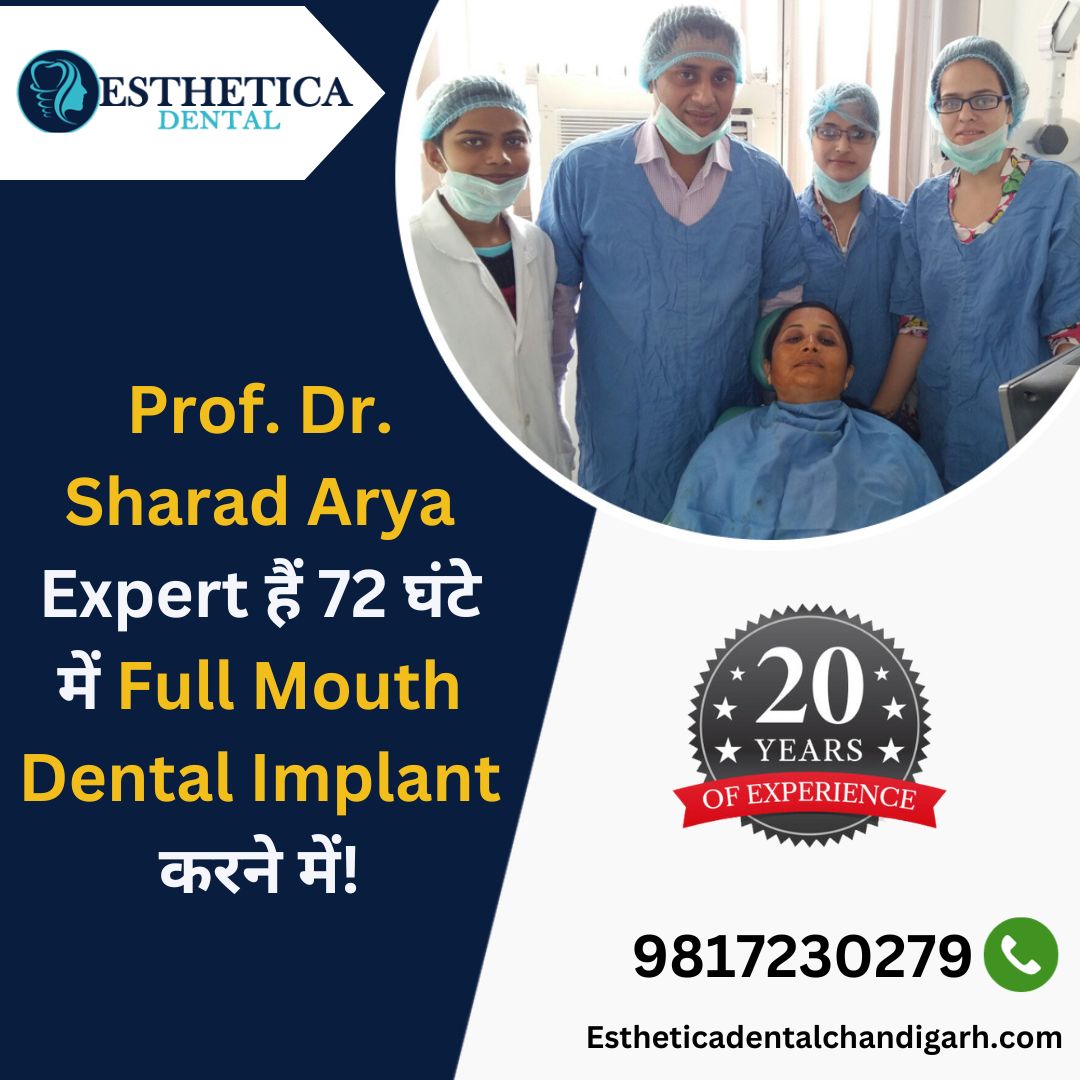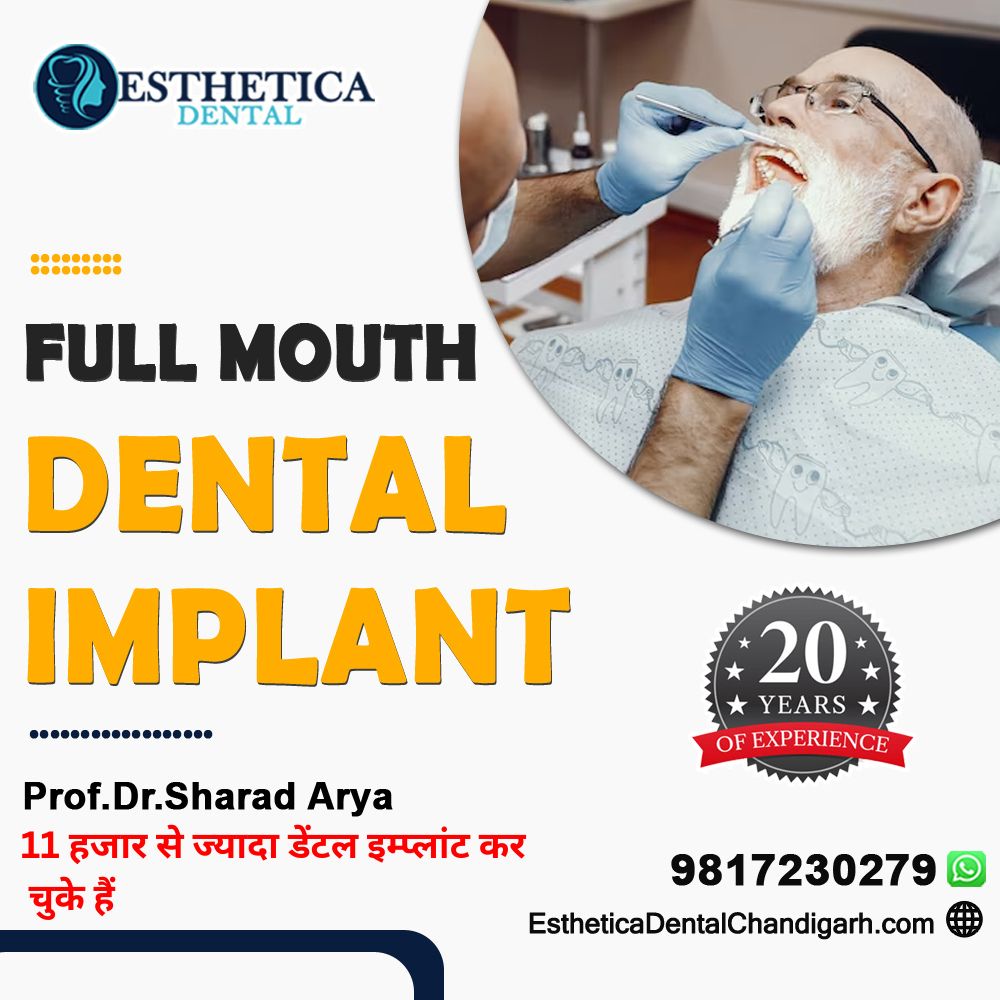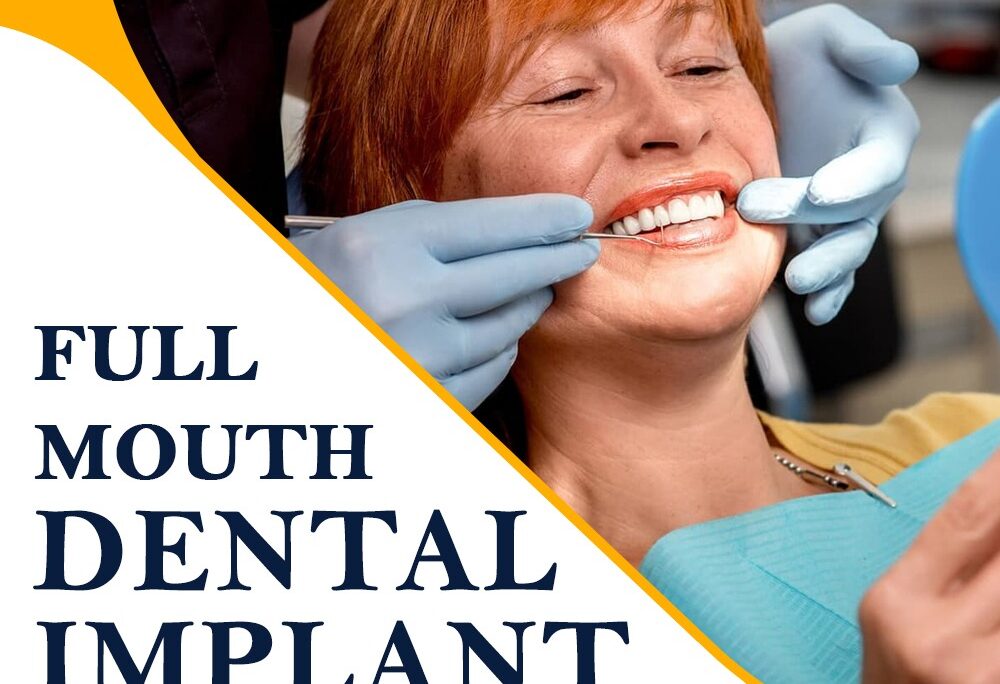Dental implant in mohali
A full mouth dental implant procedure, also known as full mouth reconstruction with dental implants, is a comprehensive dental restoration treatment that replaces all or most of a person’s missing or damaged teeth with dental implants. This procedure is typically recommended for individuals who have lost a significant number of teeth due to decay, gum disease, trauma, or other dental issues. Full mouth dental implants offer a permanent and highly functional solution for restoring a natural-looking smile and improving overall oral health. Here’s an overview of the process:
1. Consultation and Evaluation:
- The process begins with a thorough consultation with a qualified prosthodontist or oral surgeon who specializes in dental implantology. During this consultation, the dentist will assess the patient’s oral health, take X-rays, and possibly perform a CT scan to evaluate bone density and the condition of the jawbone.
2. Treatment Planning:
- Based on the evaluation, a customized treatment plan is developed. The plan outlines the number of dental implants needed, their optimal placement locations, and the type of restoration (dentures or bridges) to be used.
3. Dental Implant Placement Surgery:
- The next step is the surgical placement of dental implants. This procedure is usually performed under local anesthesia, but sedation or general anesthesia can be an option for patients with dental anxiety or complex cases.
- Implants are surgically inserted into the jawbone, where they will serve as artificial tooth roots. The number of implants placed depends on the chosen treatment plan, but it is common to use four to six implants for each arch (upper or lower).
4. Healing Period (Osseointegration):
- After implant placement, a healing period is necessary for osseointegration to occur. Osseointegration is a biological process in which the implants fuse with the surrounding jawbone, creating a strong and stable foundation.
- Osseointegration typically takes several months. During this time, patients may be fitted with temporary dentures or bridges to maintain function and aesthetics.
5. Restoration Placement:
- Once osseointegration is complete, and the implants are firmly integrated into the jawbone, the final step is the placement of the permanent dental restoration.
- The restoration can be either a fixed bridge (permanent) or implant-supported dentures (removable but more stable than traditional dentures). The choice depends on individual preferences and the treatment plan.
6. Follow-Up Care:
- Regular follow-up appointments with the dentist or prosthodontist are essential to monitor the success of the procedure and ensure the health of the implants and oral tissues.
- Good oral hygiene practices and maintenance of the implants are crucial for long-term success.
Full mouth dental implant restoration offers several advantages, including improved chewing ability, stability, aesthetics, and overall quality of life for individuals with significant tooth loss. It is a complex procedure that requires expertise in implantology and prosthodontics, so it’s important to consult with an experienced Esthetica Dental specialist who can evaluate your oral health, discuss treatment options, and create a personalized plan tailored to your specific needs and goals.

















